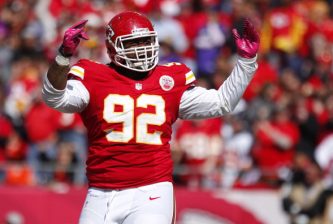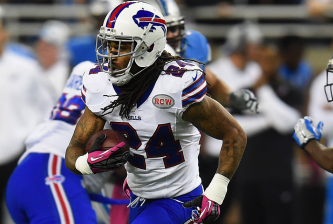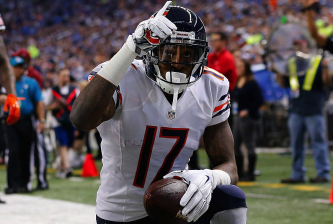It’s unfortunate, but a team has to win the NFC South this year. In a more just world all four teams would be relegated to an expansion league in the Chilean mountains.
But instead we have to embrace a reality that’s difficult to digest. Due to a combination of crippling defensive regression (see: New Orleans Saints), salary cap hell last offseason (see: Carolina Panthers), and woefully inept game management (see: Atlanta Falcons), the best-case scenario from the NFC South is a playoff team that finishes with a .500 record at an even 8-8. Though at this point a 7-9 playoff team feels more likely.
The division is a toxic wasteland in which a 4-8-1 team (Panthers) is still in playoff contention entering Week 15. It’s a mysterious place of filth where the bottom-dwelling 2-11 Tampa Bay Buccaneers are only three games behind the NFC South leading Falcons. And yet, the winner that rises above the melted garbage will host a playoff game.
Not to worry, though, because the winner will quickly be a loser.
That will first happen on the field, because if the playoffs started tomorrow a Falcons-Seahawks first-round matchup would end poorly for the Dirty Birdz. Then the Falcons (or Saints… or Panthers?) would lose significantly again on draft day.
They would lose in a unique way, and with a massive chasm. Take a look at the current league standings to see just how behind NFC South Winner X will be in the rebuilding process.
By nature any team that finishes with a record at or below .500 is deeply fractured and has needs in multiple areas. But those teams also have one truly glaring need, and a gushing hole somewhere. Not to worry, because the system is structured to give said teams a high first-round pick and therefore a valuable draft commodity.
If the season ended today, three of the four NFC South teams would hold top 10 picks, with the Falcons only narrowly missing out at 11th overall. That’s where all four teams desperately need to be slotted, and it will give them an opportunity to improve right away by addressing a core problem.
But for one team it won’t work that way at all.
The one team that insults the playoffs with its presence can’t hold a pick any higher than 21st overall. Then of course if said team somehow manages to pull off a playoff upset, the quality of that top pick falls further.
Sure, there are plenty of fine prospects to be had at the back end of the first round. Just last spring the Saints drafted wide receiver Brandin Cooks with their 20th overall pick, and he caught 53 passes for 550 yards over only 10 games before his season ended early with a thumb injury.
But the chances of landing that instant-impact player who can make a difference in his rookie season are clearly much higher when a team occupies top 10 draft real estate, rather than a slot at the back of the opening round.
The division winner could easily be as much as 12 picks behind the NFC South’s second-place team. So in exchange for a playoff game against a team that likely won four more games, the division winner (by default) will be in a different draft area code than the other three teams, and at a disadvantage while trying to suck less.
But hey, flags fly forever I guess.




